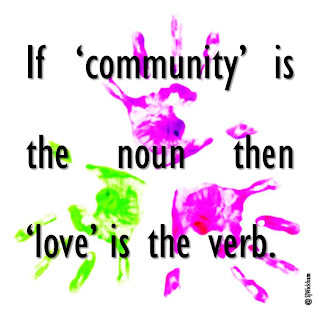When being in two
places at once won’t relate,
Because we know
it never does,
What can we do to
re-inflate,
The relationship that’s abuzz?
We ensure we make
up some way,
Creating a turn
of trust,
We certainly go
beyond what we say,
We take action beyond what’s
discussed.
***
If we are apt at pleasing people, and to a point we should be, we will have
some awful difficulties in disappointing people. Yet to live this life is to
disappoint people. We cannot go far at all before we betray and frustrate and
overwhelm people by intruding on their expectations of us. It’s not our fault,
but it remains a reality of life.
This issue is bound to either cause to be perplexed or it could liberate
us.
We have the option of remaining at odds with ourselves because we cannot
stand to disappoint people or of accepting the fact in advance of the time that
those who meet us and love us will often end up most disappointed because of
us. We must be especially cautious of those who love us, because where there is
an extreme of affection there is likely to be just as much an extreme the other
way, too. Some people end up behaving like they have borderline personality
disorder—love us then hate us, all within a short period.
We have the option: will we be determined to be frustrated and dismayed and
feel forever guilty or will we accept that people will say we hurt them when,
in fact, they hurt themselves? This shouldn’t be a hard choice.
But then there is this situation. When we must disappoint someone, because we cannot possibly please them,
even if we want to, what are we to do?
The imposition of action is our only option.
This is not so much about making up as it is about understanding relational
dynamics; that all relationships are about currency: of two forms: 1) The sort
that operates like money, where we must invest in order to manage trust. To
withdraw too much in our relational bank accounts makes us bankrupt to the
currency of trust. 2) Trust has to be managed and made relevant now; it’s no good having had a trusting
relationship—it must be current.
Acknowledging these two forms of currency compels us to do whatever we need
to do to restore and maintain trust; to redeem the redeemable moment so the
relationship has hope for the future.
***
We cannot please everyone all the
time. It is an exercise in futility to attempt it. We best plan what we might
do to recover situations when we disappoint people. We have the choice whether
we determine it is worth it or not. And trust is always the major currency. No
relationship is irredeemable. We can redeem a relationship by rebuilding trust.
© 2013 S. J. Wickham.












